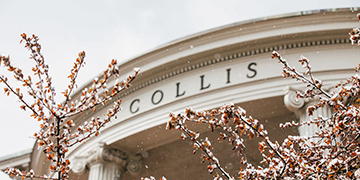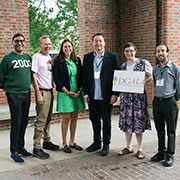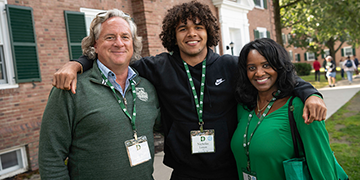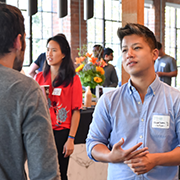50 for 50 Alumni Profile: Karen Schudson ’72
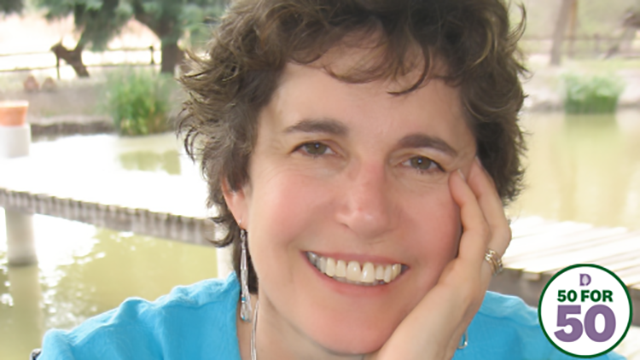
3 minute read
3 minute read
In 1969, as a junior at Smith College, Karen Schudson (neé Rubin) faced a life-shaping choice. Should she spend a year abroad in Israel, or enroll in Dartmouth's new coeducational exchange program? Choosing the latter set her on a path toward marriage—she said "yes" the third time Charlie Schudson '72 proposed, and the couple celebrated their golden anniversary in 2021—and prepared her for a career as a marriage and family therapist, executive coach, and consultant. She attended Dartmouth 1969-70, graduated from Smith the following year, and was "adopted" by the Dartmouth Class of 1971. Now she and Charlie live in Sedona, Arizona. Their son, Joel, graduated from Dartmouth in 2002.
My best friend, Kathleen McDonald (Smith ’71), and I chose Dartmouth partly because we had taken all the available classes in our major, cultural anthropology, at Smith, Amherst, and UMass, and we had heard that Dartmouth’s Hood Museum housed an excellent anthropology program. Besides, we were footloose and free without boyfriends, ready to test the odds by becoming two of 70 women sharing the campus with 3200 men.
Soon after arriving at Dartmouth’s Cohen Hall, the exchange students' dorm, we all gathered for a meeting with our new “house mother,” Marjorie, a young woman whose husband was serving as a chaplain in Vietnam. (Poor Marjorie. Most of us were vehemently anti-war; we gave her an unreasonably tough time for supporting her husband’s service.)
Marjorie asked what sort of curfew and other restrictions we wanted. Back then, many women's colleges insisted on "parietals," governing such things as when a man could visit after hours. "None!” we shouted. So, each wing of Cohen Hall made its own rules, including coed bathrooms, shower hours for “guests,” and late-night noise limits.
I loved Dartmouth. Although Smith offered a beautiful campus in quaint Northampton, Hanover provided a spectacular natural setting and, more urgently for me, a break from full-time living with women. After I married Charlie, we returned to Dartmouth for his senior year. I had graduated from Smith, not Dartmouth, as I would have preferred, but official co-education was still a year away. I was lucky to find employment in College Hall (now the Collis Center) as the assistant to two wonderful men: Paul Rahmeier, Director of the Tucker Foundation; and Harvey Pinyoun, College Chaplain. One block away, Charlie and I lived in our first home, a second-floor apartment on School Street.
I joined the Big Sisters/Big Brothers Program through the Tucker Foundation and sponsored a little girl and her sister. Much later, Charlie and I started a program, "Healing the Healers," helping professionals cope with their secondary trauma resulting from their work with sexually abused children.
Growing up, I saw the impact people can make on their communities. My mother started the first free daycare in inner-city Greensboro, N.C., where I volunteered as a child-care worker. Dartmouth reinforced and provided opportunities for a life of service.


